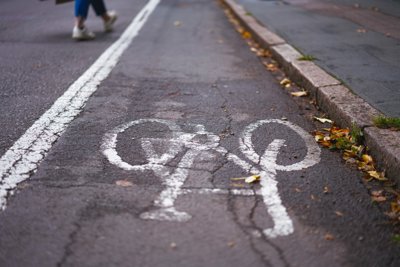University of Manchester research on Urban Living Labs has transformed sustainable infrastructure provision in Manchester, and enhanced capacity in Development Assistance Committee (DAC) list countries.
Issue
Cities will be home to three quarters of humanity by 2100 and must transform rapidly to address a range of social, environmental, and economic challenges. Sustainable solutions to urban challenges are required quickly and at scale.
Approach
University of Manchester research was foundational in developing the Urban Living Lab (ULL) approach, which uses partnerships to address place-based challenges by experimenting with different kinds of sustainable infrastructure. The research builds on two core sets of findings: the emergence of ULLs to test sustainability solutions in cities, and how to apply ULLs to innovate for urban sustainability practice.
Impact
The research team worked closely with Manchester City Council to shape their £20 million VeloCity investment in cycling. The research team developed and managed a multi-stakeholder experimental ULL approach that significantly enhanced the sustainability impacts of the VeloCity investment and changed the city’s approach to cycling.
Following this success, the University of Manchester ULL approach was adopted for assessment of the EU Horizon 2020 Triangulum project, which aimed to demonstrate, disseminate and replicate solutions and frameworks for Europe’s future smart cities. The University of Manchester research on ULLs helped avoid emissions of >2500 tCO2e and leveraged >EUR50,000,000 of investment across the project.
Research also transformed municipal capabilities in Manchester. The work led to a £1,000,000 EPSRC investment to establish the Manchester Urban Observatory, which uses sensors and data to support sustainable infrastructure trials.
The research has also been used by municipal organisations around the world to develop and deliver benefits from sustainable infrastructure. In partnership with Walk21, an international charity dedicated to ensuring the right to walk for people across the world, the ULL approach was used to design and deliver training workshops to 205 urban decision-makers. Attendees included transport managers, police, investors, engineers and planners, across East Africa, South America, and the Philippines.
More information
Institution: University of Manchester
Reearchers: Professor James Evans, Dr Jana Wendler
Share this resource
This is an open access article under the terms of the Creative Commons Attribution License (CC BY NC 4.0), which permits use, adaptation, distribution and reproduction in any medium or format, provided the original work is cited and it is for non-commercial purposes. Please contact us for other uses.
How to cite
Royal Geographical Society (with IBG) (2023) Mobilising urban living labs to create sustainable infrastructure. Available at https://rgs.org/urbanlivinglabs Last accessed on: <date>
